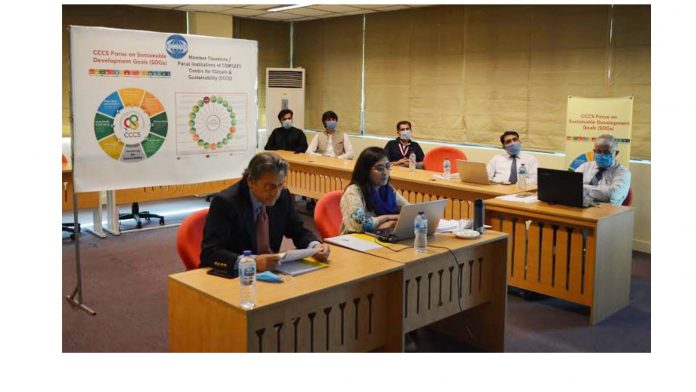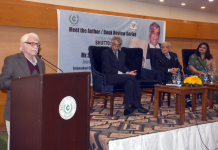ISLAMABAD, SEPT 13 (DNA) – Environmental experts from China, Japan, Kazakhstan, Pakistan, Tanzania, and Thailand were gathered by the Commission on Science and Technology for Sustainable Development in the South to mark the first ever UN’s day of Clean Air for Blue Skies.
Organized by COMSATS Centre for Climate and Sustainability (CCCS), the event resulted in important knowledge sharing on good practices, and experiences with regard to various dynamics of air pollution, and impact of deteriorating air quality on sustainable development and growth.
The webinar speakers included senior officials and representatives from Asia Pacific Clean Air Partnership of United Nations Environment Programme (UNEP); Institute for Global Environmental Strategies (IGES), Japan; International Centre for Climate and Environment Sciences (ICCES), Institute of Atmospheric Physics (IAP), China; Al-Farabi Kazakh National University (KazNU), Kazakhstan; Ministry of Climate Change (MoCC), Pakistan; and Tanzania Industrial Research and Development Organization (TIRDO), Tanzania.
The event was opened by Ambassador Shahid Kamal, Head of CCCS, and moderated by Dr. Anjum Rasheed, Assistant Professor, Centre for Climate Research and Development (CCRD), COMSATS University Islamabad, Pakistan.
The speakers of the event, inter alia, highlighted the causes of air pollution and related social and policy issues; deleterious impacts of air pollution on human health in the Asia Pacific; emphasized the urgent need for relevant policy interventions; need for useful research technique, data bases, and monitoring systems.
Discussions took place on challenges and possible eco-friendly solutions in various areas including industries, transport, brick kilns, SMEs, agriculture, and waste management, among others. International financing mechanisms, technology platforms and investment channels were identified as some means to help fill critical funding gaps for climate action solutions. Introduction of Euro-V fuel in Pakistan in the backdrop of old vehicular fleet, non-compliant refineries and unprepared government machinery came up as a matter of concern.
The webinar resulted in useful recommendations with regard to science and research-backed solutions for combating air pollution; better integration of SDG on climate change in policies for greater benefit and strengthening necessary partnerships at the regional and international levels. DNA
=============

















